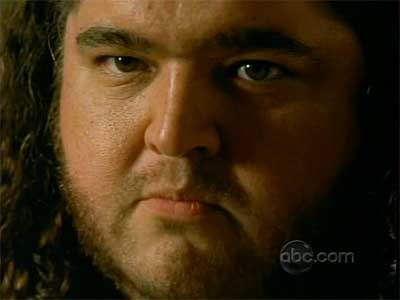
ABC's lineup returns with all-new episodes tonight, the first post-strike installments of
Ugly Betty, Grey's Anatomy and
Lost. The other broadcast networks present all-new episodes, too, continuing their post-strike rollouts of such shows as NBC's
30 Rock and CBS's
CSI: Crime Scene Investigation.But now that the networks have rebuilt their normal schedules, will viewers return at the same levels?
In other words: If they build it, will we come?
Hard to tell. I'm thrilled to have new episodes of Lost over which to puzzle -- but even though it hasn't been that long since the previous episode, I still have a problem remembering where things stood at the last cliffhangers. Ben's daughter was surrounded by hostile forces and her mother and boyfriend were killed (or were they?), and Sayid, on the freighter, had outed Michael as a former castaway... but I'm hazy on the rest. And it's supposed to be my job to keep up with this stuff.
Ugly Betty and Grey's Anatomy, back after much longer hiatuses (hiati?), have me even more confused. More to the point, they have me a little less engaged and involved. In television land, absence doesn't necessarily make the heart grow fonder. Sometimes, it merely forces the heart to look elsewhere.

ABC's Desperate Housewives, for example, was stalled by the strike just as a tornado descended on Wisteria Lane, and the show was running in full creative stride. The series returned two weeks ago, picking up just where it left off (chronologically and creatively), but not all of the viewers returned with it.
Last Sunday's episode of Desperate Housewives was the fourth most popular program of the week, behind only two installments of American Idol and one of Dancing with the Stars. So that's good news, and a victory for scripted programming, right? Not necessarily.
While that Housewives episode was ranked fourth for the week, it also ranked as the lowest-rated episode in the series' history, attracting 15.7 million viewers. That's not a season low, but a low for the show's entire four-year run. That's a statistic the networks should be looking at very closely -- because it's a clue that viewers aren't watching them as closely in this post-strike environment.
And now, as I talk to people in Hollywood, what I'm hearing is that the threatened Screen Actors Guild strike, which would take place at the end of June if it occurs, is not as unlikely as it once seemed. In this climate, talk of a second Hollywood strike in the same one-year period is pathetically short-sighted.
If TV at its best can't lure viewers back to the tube at pre-strike levels, what will a second round of TV at its worst do? Sadly, we may all have the misfortune to find out.